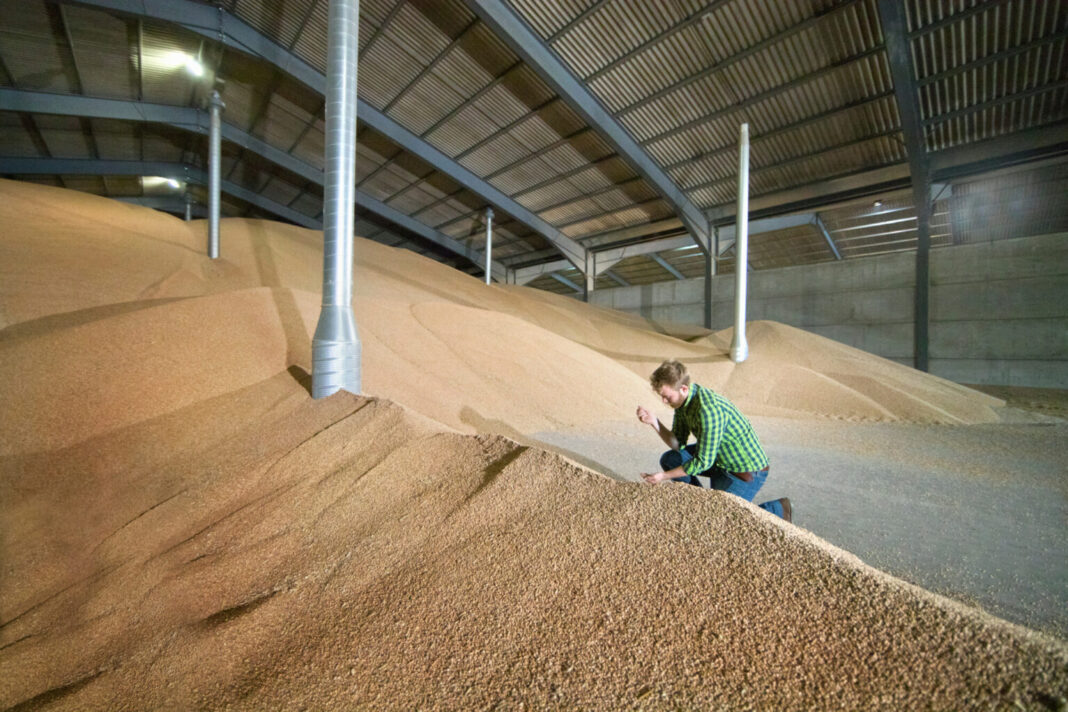With a large percentage of the cereal harvest now in store, the correct operation of crop ventilation systems can maintain the quality, whilst it’s in there. Evans & Pearce managing director Rob White, provides his advice.
Fan running times need to be managed to utilise the full potential of autumn cooling conditions and are crucial to achieve cost-effective cooling.
Don’t leave fans on continuously all autumn and winter and don’t wait only for the cool dry days. The key is the temperature differential between crop and ambient air; every time ambient air is 4–6oC cooler than the crop, operate fans to ensure you are always cooling the crop. Humidity is largely irrelevant in a low volume system; by low volume we mean air flows of up to six cubic feet per minute (cfm) per stored tonne. The volume of air is not usually enough to introduce moisture back into the crop. The AHDB endorses this message and recognises the importance of cool air, even if the relative humidity is high.
Evans & Pearce customer feedback suggests sucking heat to the pedestal is the preferred option. A good quality pedestal fan will do either – however, choose a direction and stick to it, don’t alternate.
If you do not have a fan for every pedestal, fan rotation every 3–4 days is important to ensure regular ventilation to all parts of the heap. If using top caps on pedestals without a fan, check for condensation on the underside of the cap. If present, a fan is needed on that pedestal to draw out the warm air rising from inside the bulk.
Regular checking of your harvest is important; make sure leaking roof sheets are not allowing a back corner to start spoiling. Is your crop cooling evenly? If not, a screw in ‘hot spot spear’ might be needed to sort out a problem area. Even with an automated control system, crops must be checked – a sometimes tedious but necessary job
- Run fans only when ambient air is 4–6oC lower than crop temperature
- Stick to either blowing air in to the pedestal or sucking it out, do not alternate
- Check crops, especially after stormy weather; damaged roof sheets can easily go undetected Rotate fans around every few days to ensure the bulk gets regular ventilation
- Consider extra fans in mild autumn/winter conditions to utilise every cooling opportunity Differential Control Systems do not have to be complicated or expensive but are very useful
- A modest investment in a crop temperature spear will remove guess work and highlight problem areas
- Seek advice if you are unsure – crops production costs are too high to let them spoil in the store.



